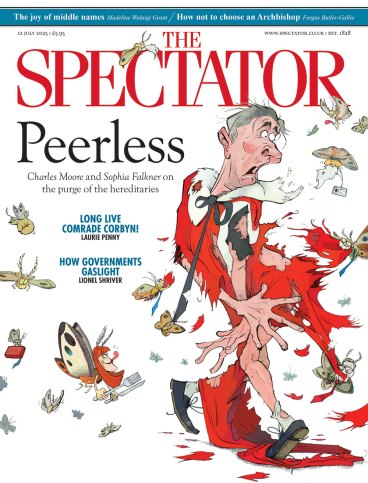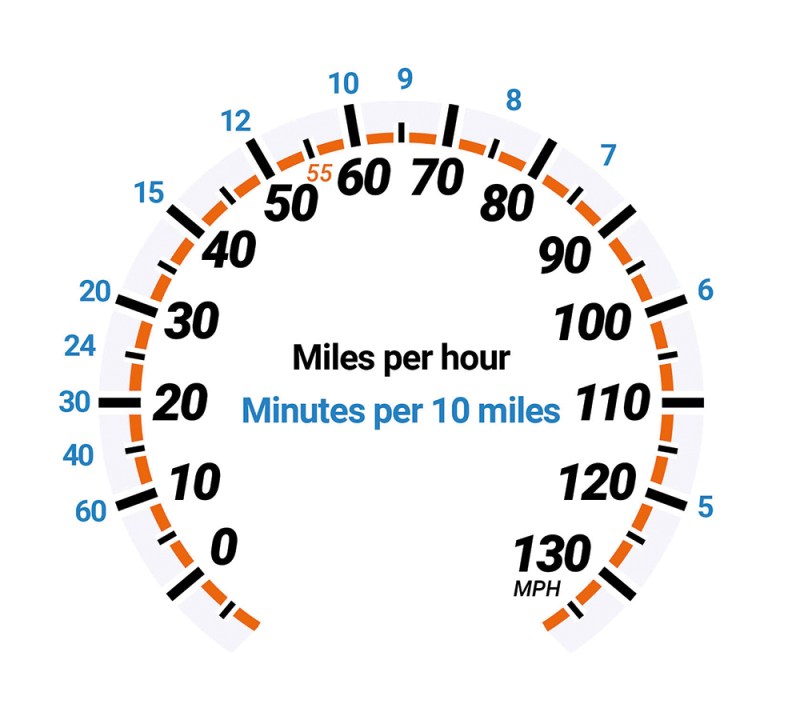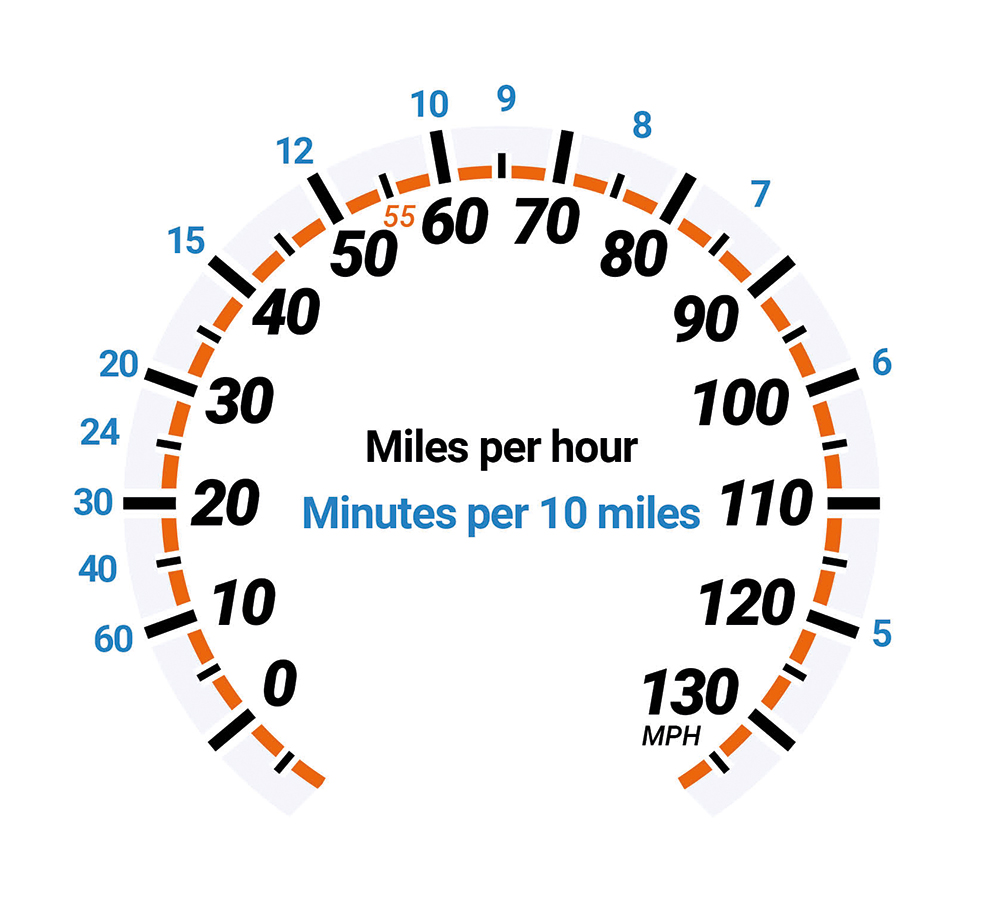
The device you see on this page is called a ‘paceometer’ and was devised by behavioural scientists Eyal Peer and Eyal Gamliel. It features in their scientific paper ‘Pace yourself: Improving time-saving judgments when increasing activity speed’. Study it carefully, because as many people have confirmed to me, it will ‘change the way you drive forever’. Nassim Taleb described it as ‘mathematically trivial, but completely counterintuitive’.
The inner digits show speed in the conventional way: in this case miles per hour. In other words, how far you travel at some velocity in a given time. The small digits around the outside are the paceometer: they show the same information but expressed the other way around. Instead of the distance you travel in a given time, this shows the time taken to travel a given distance. (For maths nerds, there is a similar inversion between the way the US and UK measure fuel economy in cars – we use ‘miles per gallon’ whereas the US and most other countries flip it and measure ‘litres per 100km’.) What you will suddenly realise – something not instinctively obvious – is that the relationship between the two measures is completely non-linear. The faster you are going already, the less time you save by going 10mph faster still. Accelerate from 20 to 30mph and you save ten minutes for every ten miles you are travelling. Accelerate from 70 to 80mph and you save under a minute.
The faster you are going already, the less time you save by going 10mph faster still
As you go faster, everything unpleasant and dangerous – braking distance, energy consumption, risk of accident, risk of fatality, the likelihood of being mistaken for a German – goes up, whereas the very thing you are attempting to achieve, namely a reduction in journey time, is being attained to a smaller and smaller degree.
This shouldn’t be an epiphany, but it is. No one who had studied a paceometer would have demanded HS2 travel so needlessly fast. The distance involved is simply too short for the time-saving to be worthwhile. London to Manchester is about 160 miles. At 80mph that takes two hours. At 160mph you save an hour. But accelerate to 240mph and you have a train that can’t stop mid-journey and can’t go around corners to avoid the attractive parts of the countryside – in return for which you save a paltry 20 minutes. That’s less time than you currently waste on the Euston concourse waiting for them to announce the platform number two sodding minutes before the train leaves.
There are a few questions to be asked here. Could the ‘paceometer effect’ be applied to other metrics? For instance, could you completely disrupt the whole commercial property market by demanding that prices were listed in ‘square feet per £1,000’ rather than the other way around?
You might reasonably argue that the paceometer makes a case against increasing the speed limits on motorways, since you could save people vastly more time by reducing the incidence of pointless roadworks and contraflows. But you could also use it to argue that the 20mph speed limit in London is absurdly low, since it notionally increases journey time by 50 per cent.
Or maybe not. In my next article, I plan to confuse you still further by suggesting that the funereal 20mph limit in London might not increase journey time by very much at all.








Comments